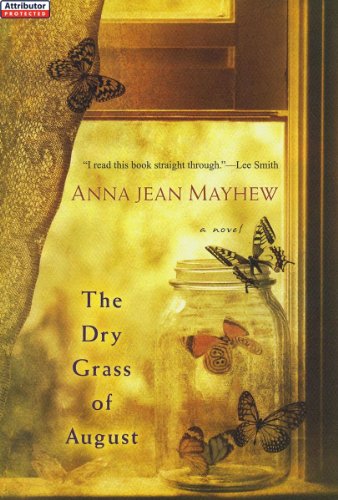The Dry Grass of August
In 1954, thirteen-year-old Jubie Watts takes a car trip from Charlotte, North Carolina, to vacation in Florida. She is accompanied by her family, including her abusive father and her selfishly oblivious mother, and their African-American maid, Mary Luther, Jubie’s friend and protector. As the family travels south, the landscape figuratively darkens. Each rest stop becomes a crisis. Mary has difficulty finding accommodations in the segregated South, and Jubie is witness to her humiliation. Eventually, when tragedy strikes, Jubie and her parents have their humanity tested.
This is a coming of age story. Jubie matures rapidly and learns to make her own independent judgments about the social milieu in which she finds herself. The setting is important in this novel, and it vividly comes to life. All the small details of life in the South at this time ring true. Jubie is a likable, intelligent young heroine. The family dysfunction is believable and the parents are well-fleshed-out characters. The father is capable of tenderness as well as brutality, and the mother eventually shows some degree of inner strength. Anna Jean Mayhew’s writing is graceful, laced with a riveting sense of danger and menace that makes the book difficult to put down.
Mary is not a stereotyped maid but a person with aspirations and a family of her own. She is the moral center of the book, the catalyst for Jubie’s evolution into a young woman of conviction and integrity. The reader certainly comes to care about her. But I found myself questioning whether anybody could be as noble as she was in the face of racist cruelty. I might have preferred it if Mary had a few warts. That quibble aside, this is an extraordinary, absorbing novel.










